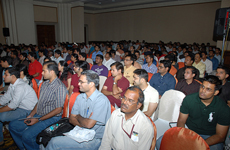An interesting piece of confusion is ingrained in the Rule made by the State of Maharashtra. A regular visitors to www.indiancooperative.com would have come across two categorical averments by the Supreme Court as regards the bye laws of cooperative societies in Co-Operative Central Bank Ltd. & … vs Additional Industrial Tribunal, … on 3 April, 1969 [1970 AIR 245, 1970 SCR (1) 206 by the Division Bench of J. Bhargava Vishishtha, J Shelat, And J.M.Vaidyialingam, namely:
(1) “The principle that rules framed under a statute have the force of statute does not apply to bye-laws of a cooperative society. They merely govern the internal management, business or administration of a society and may be binding between the persons affected by them but are neither law nor do they have the force of law”
(2)“ It has no doubt been held that, if a statute gives power to a Government or other authority to make rules, the rules so framed have the force of statute and are to be deemed to be incorporated as a part of the statute.”
Clause (d) of Sub-Rule (1) of in Rule 4 of the M.C.S. Rules 1961 provides provocation to a serious thinking on the part of conscious cooperators. Rule 4(1) prescribes a procedure required to be followed while making application for registration of a cooperative society under Section 8 of the M C S Act 1960.
Sub-Rule (1) thereof requires that every application for registration of a society under Section 8 shall be made in Form ‘A’ and shall, in addition to four copies of the proposed bye-laws of the society, be accompanied by:
(a)List of persons contributing to the share capital and entrance fee
(b) Bank Balance Certificate in favour of the proposed society;
(c) Explaining how the working of the society will be economically sound and the description of immovable property proposed to acquired.
Now look at carefully to following requirement in Rule 4(1)(d) being a part of the procedure of making application for registration of a society.
“(d) such other documents as may be specified in the model bye-laws, if any, framed by the Registrar;
This Rule 4 was substituted in 1975. The first Model of cooperative housing society Bye-law was framed in the office of the Registrar of Cooperative Societies and approved by the Commissioner and Registrar of Cooperative Societies M.S.PUNE under his letter No Model Bye-Laws E-11/81 DATED 5-10-1984.
Model Bye-Laws are indirectly given credential of a mandatory rule made by the State Government in this process. This is patently untenable in view of what the Supreme Court has said (as quoted above) about the bye-laws in the year 1969.
Model bye-laws are recommendatory in nature as the Government does not think it advisable to upgrade its status as part of a statute because that would go counter to the cooperative principles. It would also happen that the bye-laws will start getting part of the entire judiciary as they will be no longer inferior to the M.C.S. Rules 1961 and the M C S Act 1960.
In that context it is a mystery that Model Bye-Laws are being raised to a level of statute under the Maharashtra Cooperative Societies (Amendment) Act 2013, enacted to align the M C S Act 1960 to the new directive principle of State Policy namely “The State shall endeavour to promote voluntary formation, autonomous functioning, democratic control and professional management of co-operative societies [Article 43B] The Registrar has a been conferred a statutory power under new proviso to Section 14(2) reading as : Provided further that, the Registrar may specify the Model bylaws, for such type of societies or class of societies, as he may deem fit.”. Have a re-look at what Supreme Court said as quoted in Para one hereof “
“It has no doubt been held that, if a statute gives power to a Government or other authority to make rules, the rules so framed have the force of statute and are to be deemed to be incorporated as a part of the statute.”
Is it that the Government so badly lacks the internal congruence that internal management rules of cooperative societies are made part of statutes and made an external affair?
Supreme Court in 2013 judgment made an observation that “Rights of the citizens to form co-operative societies voluntarily, is now raised to the level of a fundamental right and State shall endeavour to promote their autonomous functioning. The Parliament, with a view to enhance public faith in the co-operative institutions and to insulate them to avoidable political or bureaucratic interference brought in Constitutional (97th Amendment) Act, 2011, which received the assent of the President on 12.01.2012, notified in the Gazette of India on 13.01.2012 and came into force on 15.02.2012.
Has it not provoked the reader enough to think where are we going? ?
